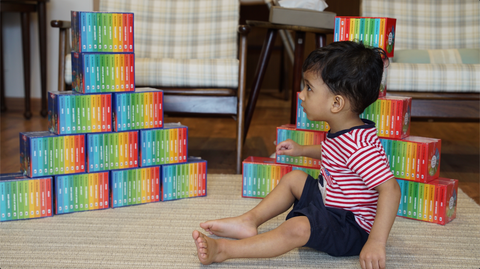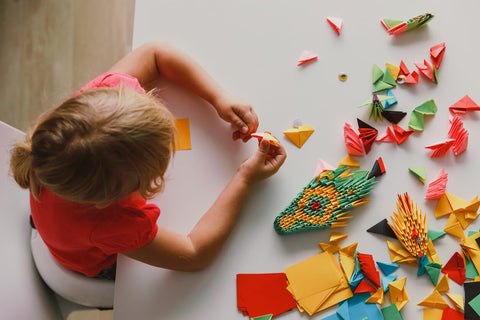Play is more than just fun; it’s one of the most powerful ways children learn. Through play, kids explore the world, solve problems, build social skills, and develop their imagination. That’s why play-based learning has become such a popular approach for parents and educators. It puts the child’s natural curiosity at the centre and makes learning feel joyful, not forced.
One of the most underrated tools for play-based learning is books. The right books don’t just tell stories; they invite children to imagine, act, question, and create. Research shows that children learn best when they are engaged and having fun. At Woodpecker Books, we have designed tools like Learning Treasures to make this approach a practical and effective home-learning experience. Each comes with reward stickers that serve as positive reinforcement, boosting children’s confidence and making learning feel rewarding. When kids complete an activity and earn a sticker, they feel proud of their progress, which encourages them to keep going.
The best part is how easily books can become part of daily life. You can set up a cosy story corner with a few props to encourage play, act out the stories together using silly voices, or pause mid-book to ask your child what they think happens next. You can even mix books with simple hands-on activities — paint a scene from a book, or go outside to spot plants and animals after reading about the garden. After reading about the environment, you might set up a pretend play gardening station. A book on rhymes or sounds could turn into a silly song-making session.
Even simple storybooks can be the beginning of imaginative play. Our series ‘Growing Up with Pebbles & Pogo’ is especially powerful for play-based learning because it turns everyday challenges into playful, relatable stories. Through these adventures, children see familiar situations like – sharing toys, trying new foods, or managing big feelings – play out in light-hearted ways. These books can be used as prompts for pretend play, turning a story about tidying up into a clean-up game, or a story about kindness into a puppet show
Collections like the Little Library, Flash Cards, and The A to Z of Alliterations make it easy to bring play into everyday learning. With the Little Library, children can line up the tiny books to build a “book train,” retell the story using toys as characters, or even sort the books by colours or themes. Flash Cards can turn into a treasure hunt where kids search the room for matching objects, or a quick round of “guess the card” with clues acted out. The A to Z of Alliterations can inspire silly tongue-twister challenges, alphabet scavenger hunts, or mini puppet shows where kids invent stories using words that start with the same letter. These kinds of playful add-ons keep learning light, hands-on, and full of imagination.
Play-based learning keeps curiosity alive, and books are one of the best ways to fuel that spark. By weaving stories and activities into everyday routines, you can turn ordinary moments into playful opportunities for growth. When children see books not just as something to read but as a gateway to play, they begin to develop a love of learning that will stay with them for life.




